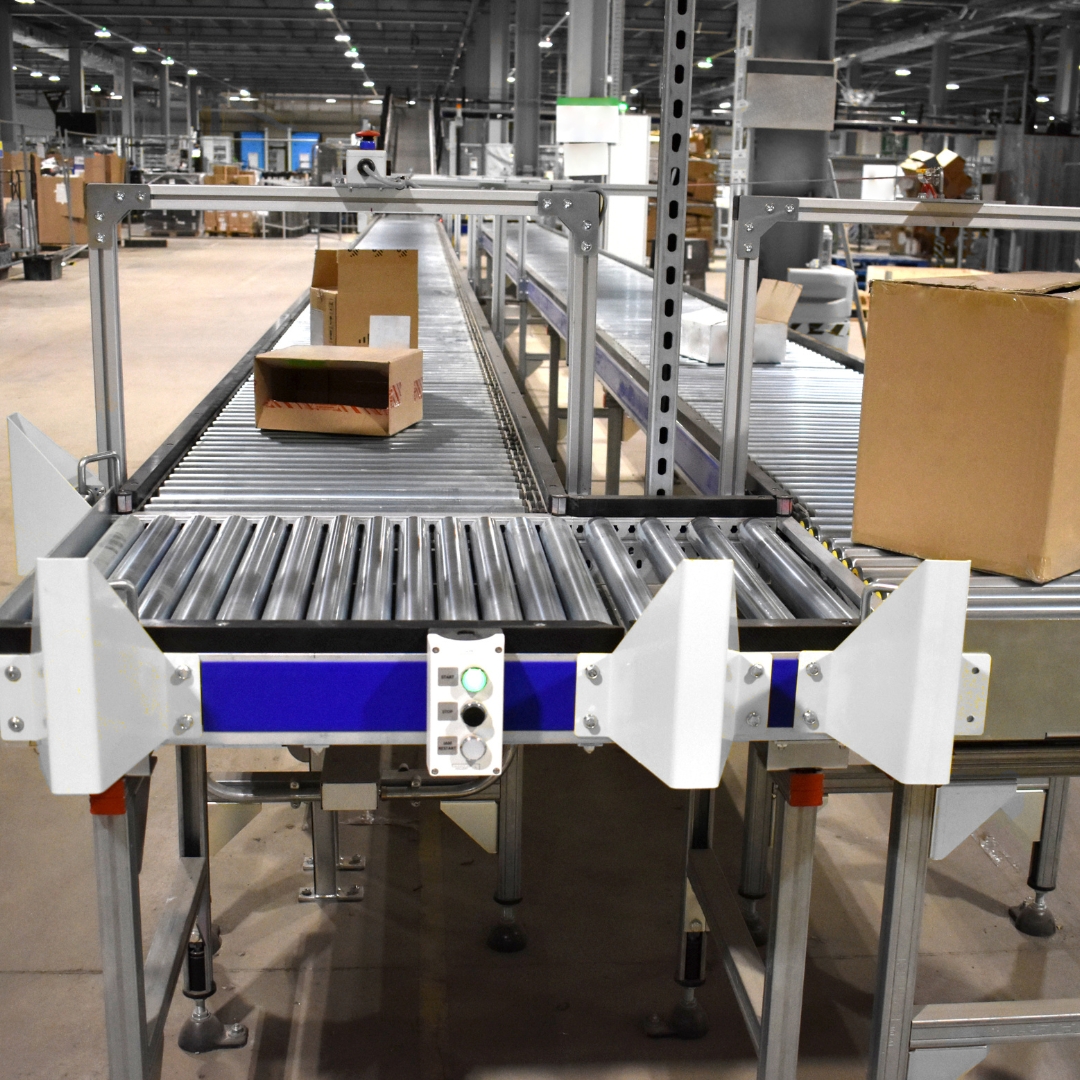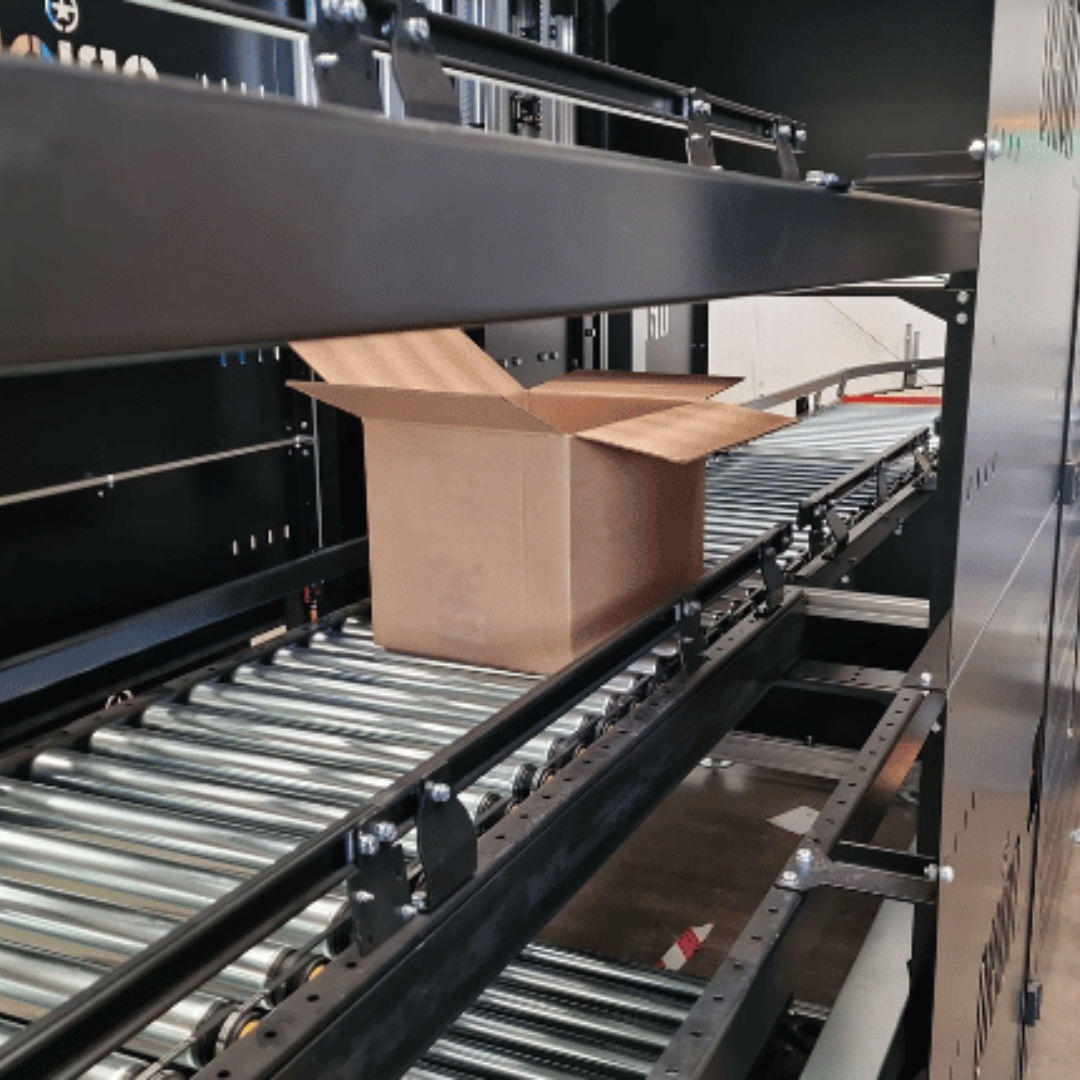In today’s competitive manufacturing landscape, downtime can have significant financial and operational consequences. Whether it's due to equipment malfunctions, manual handling inefficiencies, or bottlenecks in production, downtime results in lost productivity and increased costs. In the UK, where industries such as automotive, food processing, and logistics thrive, reducing downtime has become a top priority. One of the most effective solutions being adopted by UK manufacturers is the implementation of automated roller conveyor systems.
The Importance of Reducing Downtime in Manufacturing
Downtime not only disrupts production schedules but also impacts the overall efficiency and profitability of manufacturing operations. When production lines stop, delivery timelines extend, and businesses may incur penalties, face customer dissatisfaction, or lose out on potential revenue. According to studies, unplanned downtime can cost manufacturers up to 20% of their total revenue.
In the fast-paced UK manufacturing sector, reducing or eliminating downtime can be a game-changer. This is where automated roller conveyor systems come in, offering a reliable, scalable, and cost-effective solution to keep operations running smoothly.
What are Automated Roller Conveyor Systems?
Automated roller conveyor systems are advanced material handling systems designed to move goods seamlessly through production lines. Unlike traditional manual or semi-automated systems, automated roller conveyors are integrated with smart technologies like sensors, motors, and control systems that ensure smooth, consistent, and efficient movement of products. These systems can be customized to handle a wide variety of materials, from lightweight parcels to heavy industrial loads, with minimal human intervention.
How Automated Roller Conveyor Systems Reduce Downtime
-
Minimizing Human Error
- Human errors are one of the most common causes of downtime in manufacturing. Manual material handling processes are prone to mistakes, delays, and inefficiencies. By automating material transport with roller conveyors, UK manufacturers can significantly reduce human error, leading to smoother and faster operations.
-
Enhanced Predictive Maintenance
- Modern automated roller conveyor systems are equipped with sensors and monitoring technologies that provide real-time data on the health and performance of the system. This allows for predictive maintenance, where potential issues are identified before they lead to breakdowns. As a result, manufacturers can plan maintenance during scheduled downtimes, minimizing unexpected halts in production.
-
Streamlined Production Workflow
- Automated roller conveyor systems enable the continuous flow of materials and products through the manufacturing process. With optimized routing and distribution, these systems ensure that each stage of production receives the necessary materials at the right time, reducing bottlenecks and preventing unnecessary delays.
-
Quick and Easy Reconfiguration
- One of the key advantages of automated roller conveyor systems is their flexibility. They can be easily reconfigured to accommodate changes in production needs. This adaptability is especially valuable for manufacturers in the UK who need to adjust their operations quickly to meet changing market demands or product lines, without causing significant downtime for retooling.
-
Improved Safety
- Manual material handling can result in accidents, injuries, and subsequent downtime due to health and safety investigations or recovery time. Automated roller conveyors enhance workplace safety by reducing the need for human interaction with heavy or hazardous materials. This leads to fewer accidents and less downtime associated with safety concerns.
-
Higher Throughput with Reduced Labor Costs
- Automated roller conveyor systems can handle a higher volume of materials than manual systems, leading to increased throughput. In addition, by reducing the reliance on manual labor, manufacturers can lower labor costs while ensuring a consistent production flow without interruptions.
Real-World Examples of UK Manufacturers Benefiting from Automation
Several UK manufacturers have already seen dramatic improvements in their operations after implementing automated roller conveyor systems:
-
Food Processing Industry: In the food sector, where hygiene, speed, and precision are critical, manufacturers are using automated roller conveyors to reduce manual handling and contamination risks. This ensures faster processing times and less downtime related to quality control issues.
-
Automotive Industry: Automotive manufacturers, who often deal with large and heavy components, have integrated automated roller conveyors into their assembly lines to streamline the movement of parts between workstations. This has drastically reduced wait times and eliminated the need for manual material transport, allowing production to run more efficiently.
-
Logistics and Distribution: The surge in e-commerce has put tremendous pressure on warehouses and distribution centers. Automated roller conveyors in these facilities ensure that packages are sorted and moved quickly and accurately, minimizing downtime caused by mismanagement of goods or manual errors.
Future Trends in Automated Roller Conveyor Systems
As technology continues to evolve, we can expect even more sophisticated automated conveyor systems to emerge. Artificial intelligence (AI) and machine learning are set to play a larger role in predictive maintenance and system optimization, while robotic integration will further reduce human intervention in material handling processes. These advancements will make automated roller conveyor systems even more efficient and reliable, providing UK manufacturers with greater opportunities to minimize downtime and maximize productivity.
Conclusion
Reducing downtime is essential for UK manufacturers looking to stay competitive in today’s fast-paced market. Automated roller conveyor systems offer a proven solution to this challenge, providing faster, more reliable material handling while reducing the risk of human error, equipment failure, and production delays. By investing in automation, manufacturers not only cut downtime but also improve overall operational efficiency, leading to long-term profitability and success.
If you're a UK manufacturer looking to optimize your production line and reduce downtime, exploring automated roller conveyor systems could be the game-changing solution your business needs.






